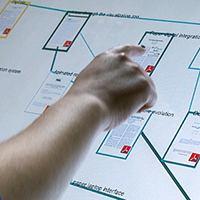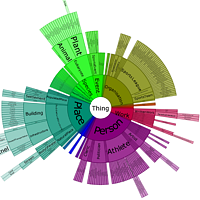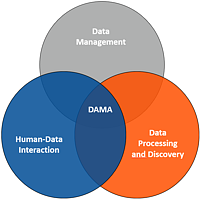Courses of Ingela Rossing
Students will be introduced to some general HCI principles and guidelines and the relevant aspects of human cognition and perception. They will learn the general principles of interaction design for digital as well as physical products, including different tools and methods for the requirements analysis, prototyping as well as evaluation. Thereby, a special focus will be on user-centred design where users are involved early in the design process and provide feedback during multiple iterations of the interaction design lifecycle model.
Teacher: Prof. Dr. Beat Signer
In this course students learn about the representation (abstraction) and presentation of data in terms of different visualisation techniques supporting the exploratory analysis for scientific discovery as well as the design of tools for the presentation of large datasets. The theory further covers specific elements of human perception and colour theory and we discuss different design principles and interaction techniques for human-in-the-loop data exploration underlined by various case studies. The theory is applied and further deepened in a group assignment where interactive visualisations are designed and implemented for different rich datasets.
Teacher: Prof. Dr. Beat Signer
The goal of this seminar is to introduce students to the critical reviewing of research papers. Since each student will not only be assigned a single research paper but also a more general research topic, the students will learn how to independently investigate a specific topic based on studying referenced material as well as other resources. By writing a report about the assigned research topic, the students learn how to critically analyse a research paper and evaluate its contribution in the context of a specific research area.
Teacher: Prof. Dr. Beat Signer




